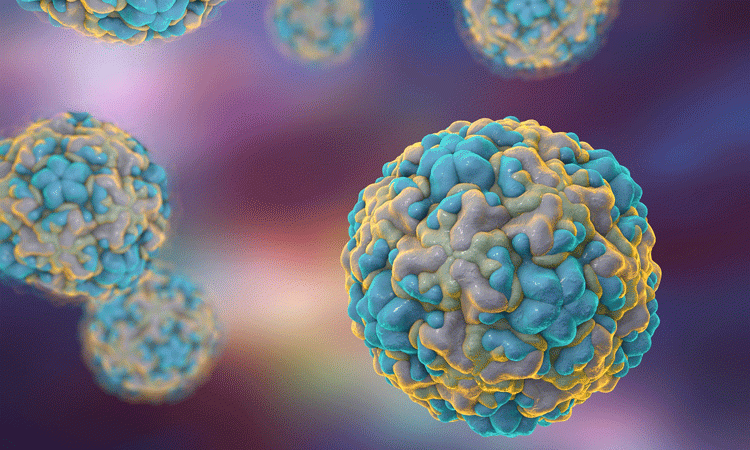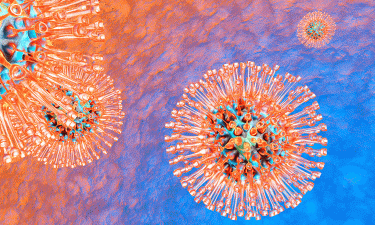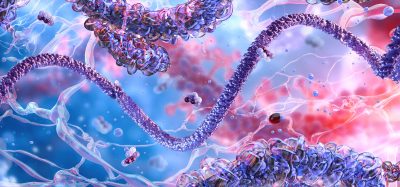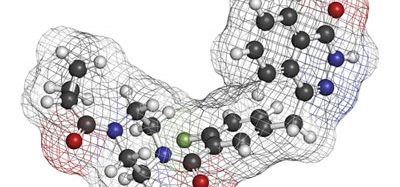Hitting the target – utilising recombinant antibodies for viral research
Posted: 17 September 2019 | Dr Gary McLean (Imperial College London and London Metropolitan University), Nikki Withers (Drug Target Review) | No comments yet
Having worked in antibody research for over 20 years, Gary McLean has seen how the industry has progressed and understands the potential that antibodies have in the future of medicine. Nikki Withers hears how the focus has shifted from discovery to genetic sequence manipulation and how this can be applied to viral target identification and other research.


AS OF APRIL 2019, there were 182 monoclonal antibody (mAb) drugs undergoing Phase III clinical trials worldwide, with the expectation that many mAbs will be approved and rolled out into the market in the forthcoming years.1
Indeed, the global mAb market has seen significant expansion recently, as seven of the top 10 blockbuster drugs were classified as biologics in 2018 with most based on mAbs.1 “The amount of money that is poured into antibody research is enormous, but the rewards are also immense,” says Gary McLean, Honorary Senior Research Fellow at Imperial College London and Reader in Molecular Immunology for the School of Human Sciences at London Metropolitan University.
The main challenges of antibody research are the time and cost involved, and the potential risk of failure”
However, antibody research doesn’t come without complexities. “The main challenges of antibody research are the time and cost involved, and the potential risk of failure,” says McLean. “The amount of work involved is enormous and the failure rate is so high.” However, he adds that the potential of antibodies in medicine is very exciting – “they are currently the biggest selling drugs on the planet”.
Early research
McLean’s interest in antibodies started in the 1990s when he was working at the University of British Columbia in Canada. He was involved with a team who were using antibodies as a therapeutic approach for cancer. “It was a novel approach,” he explains. “This line of work didn’t make it through to a drug, but it exposed me to working with antibodies and I realised their huge potential.”
He moved on to work with teams who were developing novel ways of finding antibodies. “It was all about discovery back then,” he explains. “We would immunise an animal to make a hybridoma for production of mAbs. However, these were always rodent antibodies and so we looked at ways to humanise them by manipulating the antibody sequence. We were also investigating ways of isolating individual human cells that produced the desired antibodies.”


Viral targets
McLean’s current research interests relate to cloning antibodies and viral targets. “We look at the differences in antibody structure and try to find ways of refining them in the lab. This can involve manipulation of gene sequences to change the function of the antibody.”
He explains he is currently working on three viral targets: the human cytomegalovirus (HCMV), HIV and rhinovirus. The research aims to not only produce potential antibody-based drugs but to design new or improved vaccines that will elicit these antibodies naturally in recipients.
1) Human cytomegalovirus
HCMV is a beta-herpesvirus that causes lifelong infection in humans. Primary infection is generally asymptomatic but can be severe and potentially fatal in immunocompromised individuals and neonates; it is the leading infection cause of congenital abnormalities in the Western world, affecting 1-2.5 percent of all live births.2 “Currently, there is no vaccine or treatment for HCMV,” explains McLean, highlighting the importance of his research.
The amount of time and money, and the team behind it, is enormous”
He says this project stems from work that started a long time ago, so they have plenty of reagents already. “One aspect we are looking at is to manipulate the antibody’s genetic sequence to change its function and make it do what we want.” The team are working with bi- and tri‑specifics, which simultaneously bind to two or three different types of antigen, to try and enable one arm of the antibody to bind to the virus while the other can recruit cells to destroy the virus. “Using this information, we hope to find something that could work as an immunotherapy or that can assist us with vaccine design,” he says.
2) HIV
The second target is HIV, a virus that can cause acquired immunodeficiency syndrome (AIDS). There are numerous antiretroviral treatments that are effective against HIV but drug resistance is becoming an increasing problem, according to McLean. Furthermore, there is currently no vaccine to protect against HIV infection. McLean is currently collaborating with a team in France who have been identifying antibodies from long‑term non‑progressors – people who have been exposed to HIV but have never developed AIDS or experienced disease-associated problems. “These people have natural immunity to the virus and we’re trying to figure out exactly what those antibodies are, where they interact with the virus and why these people produce them and not others.”
3) Rhinovirus
The third viral target that McLean is working on is rhinovirus – one of the causative agents of the common cold. Currently, there are no treatments or vaccines for rhinovirus and there are very few mAbs that have been discovered. Those that have are usually specific to just one strain. “Rhinoviruses are one of the most diverse families of human viruses that exists and so we are at much earlier stages in this area,” he says. “We are trying to find a vulnerable part of the virus that elicits antibody responses that are reactive against lots of strains. We are getting closer and hope that these therapeutics could be given to susceptible people in the cold season, such as those with chronic lung diseases who present more severe problems when they get the common cold.”
Expensive business


It is hard to gauge what direction antibody research will take next and how successful it will be – many failures in antibody research are never reported, while successes take years to get to market. Currently, most antibody drugs are designed for cancer or anti-inflammation; only one is for a virus (RSV). “My feeling is that this is an area of growth, and need, for the future and is where the antibody business should go,” concludes McLean.
About the author
Dr Gary McLean is a research scientist with over 20 years of experience in monoclonal antibody generation and recombinant antibody expression in academic settings and has developed significant ties with biotechnology and vaccine companies. His scientific training has led him to British Columbia where he produced and used monoclonal antibodies for cancer therapy; New York where he studied antibody gene diversification; and Texas where he continued studies using monoclonal antibodies as antiviral agents. He is currently based in London, UK where his research now focuses on monoclonal antibody-guided vaccine design for human viruses.
References
- Monoclonal Antibody Market 2019-2025 Growth, Key Players, Size, Demands and Forecasts – Reuters [Internet]. Reuters.com. 2019 [cited 5 August 2019]. Available from: https://www.reuters. com/brandfeatures/ venture-capital/ article?id=101636
- Human Cytomegalovirus (HCMV) | British Society for Immunology [Internet]. Immunology.org. 2019 [cited 5 August 2019]. Available from:
https://www.immunology.org/ public-information/ bitesized-immunology/ pat%C3%B3genos-yenfermedades/ humancytomegalovirus- hcmv
Related topics
Antibodies, Disease Research, Drug Development, Drug Targets, Genetic Analysis, Monoclonal Antibody, Research & Development, Sequencing
Related conditions
AIDS, beta-herpesvirus, Cancer, HIV, human cytomegalovirus (HCMV), rhinovirus, RSV
Related organisations
ForteBio, GenScript, Sartorius, Sphere Fluidics, University of British Columbia








